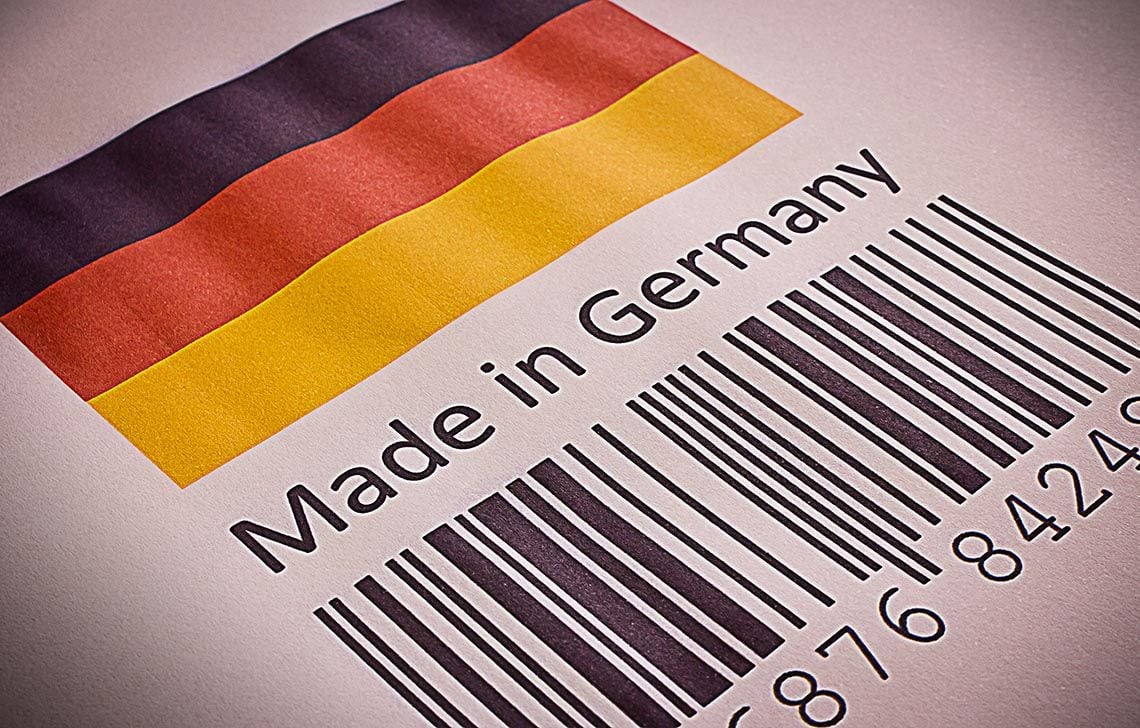Euro Pressured By German Factory Slump
- Written by: Gary Howes

Image © Adobe Stock
The Euro is under pressure in midweek trade after data from Germany disappointed and suggested the downturn in Europe's largest economy was not over.
Hopes that Germany's manufacturing and industrial sector was turning a corner were dashed after German Factory Orders declined a massive 3.7% month-on-month in October, according to Destatis, disappointing against expectations for growth of 0.2%.
This represents a sharp slowdown from September's growth of 0.7%.
The Euro fell 0.15% against the Pound to 0.8561 with the bulk of the decline coming in the minutes following the Destatis release, (GBP to EUR = 1.1680). "German factory orders released this morning showed a larger than expected fall of 7.3% year-on-year, adding to the continued negative narrative surrounding the EUR. GBPEUR may well have another attempt at the 2023 highs," says Thanim Islam, Head of FX Analysis at Equals Money.
Compare Currency Exchange Rates
Find out how much you could save on your international transfer
Estimated saving compared to high street banks:
£2,500.00
Free • No obligation • Takes 2 minutes
The Euro-Dollar was lower by 0.10% at 1.0788: "EUR/USD stays offered below 1.08 after worse than forecast German new orders," says Kenneth Broux, a strategist at Société Générale.
In fact, the Euro traded lower against all its G10 peers, apart from Sweden's Krona.
The data revealed global demand remained weak, with foreign orders falling by 7.6%, new orders from the euro area decreasing by 7.6%, and orders from the rest of the world decreasing by 7.4%. Domestic orders rose by 2.4%.
According to the figures, real turnover in manufacturing (seasonally and calendar adjusted) was down 0.5% in October 2023 from the previous month.
The slowdown in Germany's key sector points to an ongoing malaise at the heart of the Eurozone and will back expectations for the European Central Bank (ECB) to cut interest rates sooner than later.
The Euro has come under pressure over the past seven days owing to a build-up in bets for ECB rate cuts.
These expectations were boosted on Tuesday after the ECB's Isabel Schnabel, a prominent member of the ECB's rate-setting committee, failed to rule out an interest rate cut occurring in the first half of 2024.
"Am I reading it correctly that you're not ruling out a rate cut before mid-year then?" An interviewer asked Schnabel. Her response didn't rule cuts out, as the ECB remains "data dependent."
"Can we talk about cuts now? Judging from today’s interview with Isabel Schnabel, the most influential hawkish ECB policymaker, the answer is yes," says Davide Oneglia, an analyst at TS Lombard.
The incoming data supports the disinflationary narrative concerning the Eurozone, which can keep the Euro under pressure for the foreseeable future.
Compare Currency Exchange Rates
Find out how much you could save on your international transfer
Estimated saving compared to high street banks:
£2,500.00
Free • No obligation • Takes 2 minutes




